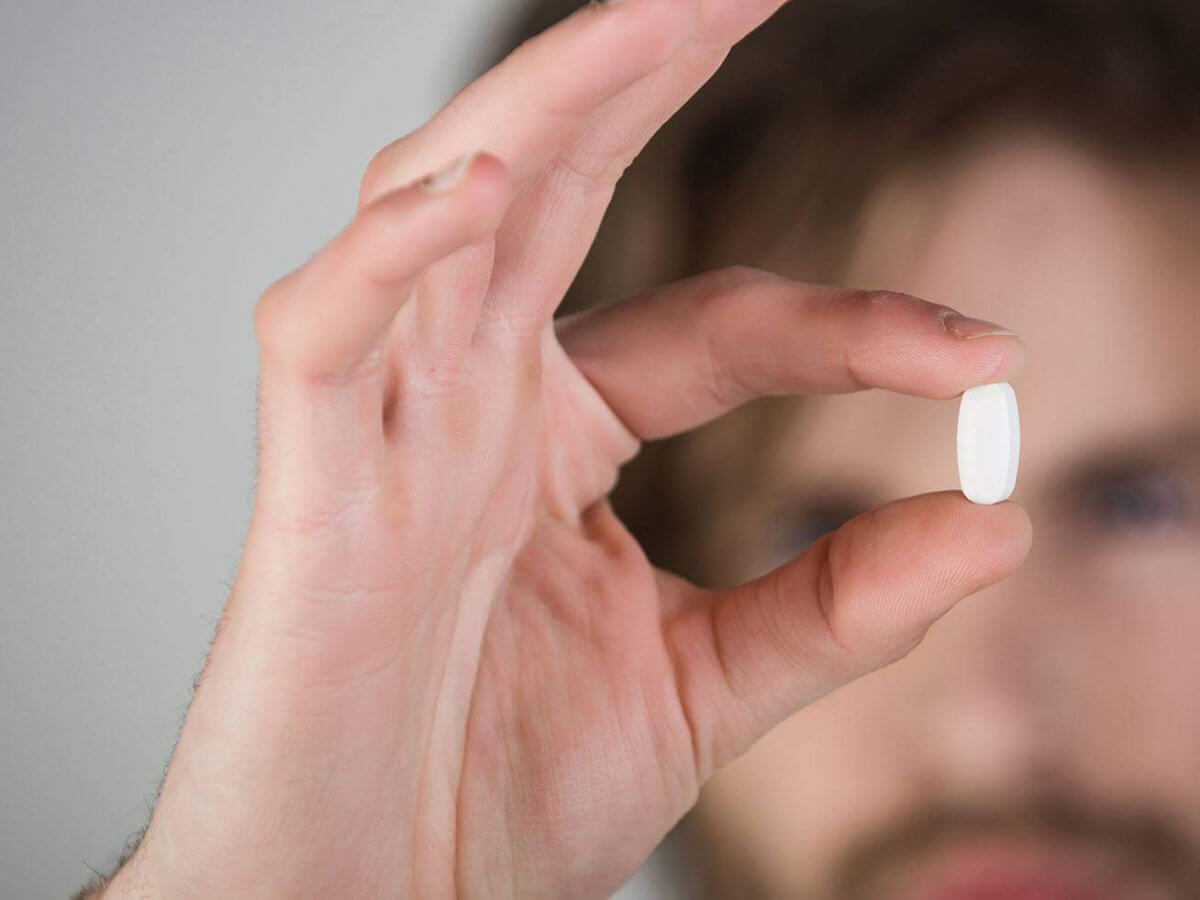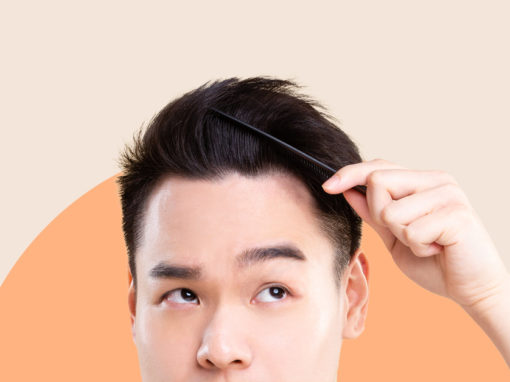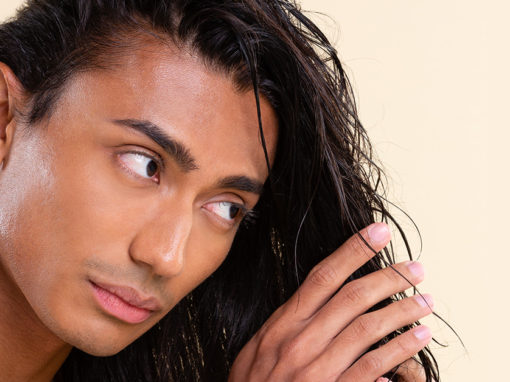According to a 2016 Medical Daily article, individuals spent more than $176 million on hair supplements in 2016. Generally, people who buy hair supplements are willing to invest in these supplements to achieve a thicker and healthier head of hair. This figure is projected to continue to grow in the future. In fact, the global haircare market had an estimated valuation of $85.5 billion in 2017 and this figure is expected to reach $102 billion by 2024..
The growing popularity for hair supplements brings about the following question: Do these products actually work? Well, yes and no. Some hair supplements have been shown to produce positive results on hair growth and thickness, while others are merely rich on claims and less valuable when it comes to producing actual results.
This post will analyse the effectiveness of hair supplements when it comes to treating hair loss, and more specifically, male pattern baldness (MPB). Additionally, common myths surrounding hair supplements will be debunked. There will also be a segment on incorporating these products into an effective hair loss prevention routine. Let’s begin!
A Few Quick Facts About Hair Supplements
There are a few “need-to-know” facts about the health and hair supplement industry. Health and hair supplements need to be regulated by the Food and Drug Administration (FDA).
FDA Regulation
FDA regulation ensures the safety, efficacy and security of a product. FDA regulations for approving health and hair supplements are more lenient than approving a specific type of drug. To attain FDA-approval for a drug, it needs to meet two important criteria:
- Safe for usage
- Effective in the treatment of a specific disorder or disease
Quite contrastingly, health supplements do not undergo the same rigorous FDA testing as foods and drugs. This creates a sense of doubt as to whether these hair supplements are actually effective and safe for use.
BENEFIT MARKETING VS SCIENTIFIC PROOF
Health and hair loss supplement companies market to potential customers through promoting claimed benefits of the product. For example, male pattern baldness (MPB) causes not only a severe receding of the hairline but also damage to self-confidence. With that idea, many men may buy the “miracle” product solely based on trust in the product’s claims and not on actual scientific proof. Therefore, it is important to do thorough research on different hair supplements before making a purchasing decision. It is advisable to seek the advice of a doctor before incorporating supplements to your hair loss treatment routine.
6 Popular Ingredients in Hair Supplements

Now that we have discussed some facts about the hair supplement industry, let’s go straight into the popular ingredients!
1) Biotin
Biotin plays an important role in preserving hair, skin and nail health. It is a water-soluble vitamin that is able to promote accelerated hair growth. As such, it is an active ingredient in hair shampoos, conditioners, and oral supplements such as tablets and capsules.
Similar to other active ingredients in hair growth supplements, biotin produces positive hair growth results only in specific circumstances. For instance, scientific studies have proven that biotin supplements can increase hair growth in individuals suffering from a biotin deficiency. A biotin deficiency is rare for most people but extremely common among pregnant women. Biotin has been shown to improve the rate of hair growth in women with self-perceived hair thinning.
Currently, very little scientific data is available to prove the effectiveness of biotin as a hair loss supplement for men. This is especially true among men who are dealing with DHT-induced MPB. Most research findings, to-date, have focused on the use of oral biotin supplements, such as capsules and tablets. Recently, however, some research has shown that biotin can also be absorbed through the skin. This makes ointments a possible alternative for treating biotin deficiencies in the future.
2) Saw Palmetto
Saw palmetto is another prominent ingredient in hair loss supplements. According to scientific research, it has a measurable effect on DHT levels in the prostate. This also suggests that it could be effective in treating MPB naturally. While saw palmetto may not be as effective as finasteride (a medication used to treat hair loss in men), it is a good, natural alternative to reduce DHT levels in men.
Hair supplements which contain saw palmetto have the potential to slow hair loss and halt MPB, albeit at a less effective rate than finasteride. Given that both saw palmetto and finasteride have the ability to lower DHT levels, it is not advisable to use both DHT-blocking substances at the same time. It is safer to stick to using only one DHT blocker at a time to keep your DHT levels under control and to slow down androgen-induced hair loss.
3) Pumpkin Seed Oil
Pumpkin seed oil prevents 5α-reductase from working. 5α-reductase is the enzyme responsible for converting testosterone into DHT in the body. DHT is the sex hormone that causes hair loss. Due to this reason, this oil claims to improve hair growth in men. In fact, consuming pumpkin seed oil daily over 24 weeks has been shown to increase the hair count of adult men.
Additionally, no noticeable side effects to consuming pumpkin seed oil have been noted. This proves the suitability of pumpkin seed oil as a natural treatment modality for hair loss and MPB. To date, the collective data on the effectiveness of pumpkin seed oil still remains inconclusive, but there have been some positive indications that pumpkin seed oil can, in the long run, help you to increase the thickness of your hair if consumed in moderate daily doses.
4) Rosemary Oil
Rosemary oil is another natural oil that helps improve hair growth. Studies indicate that this herb oil can also reverse common forms of hair loss in men, such as MPB. For example, a 2013 study showed hair regrowth on mice with testosterone-related hair loss after being supplemented with rosemary oil. Although not conclusive, the authors believe that rosemary oil prevents DHT from attacking the hair follicles, therefore preventing hair loss.
In 2015, a study conducted over 6 months compared the effectiveness of rosemary oil and minoxidil (commercially known as Rogaine). The results? Fascinating, to say the least. The results showed that rosemary oil was just as effective as minoxidil in increasing hair growth. Interestingly, the individuals treated rosemary oil actually experienced more hair growth than the individuals treated with minoxidil. This same study revealed that individuals who used minoxidil faced more side effects, including scalp itching. This suggests that rosemary oil could be a better alternative for individuals who have a history of allergies or skin irritation.
5) Vitamins
Vitamins also have a role to play in the promotion of healthy hair growth. These include vitamins A, B12, C, D and E. For example, vitamins C and E repel free radicals that are capable of damaging the scalp and hair follicles. Vitamin B12 can boost the production of follicle-feeding red blood cells. And vitamin D aids in the creation of new hair follicles in the scalp.
Your body is able to absorb most of these vitamins through a multivitamin supplement. However, some medical professionals would argue that it may be better to take these vitamin supplements individually instead of together. Ultimately, supplying your body with an adequate supply of vitamins and minerals can help you maintain the health, strength and thickness of your hair.
6) Zinc
Zinc has an essential role to play in the growth and repair of hair. It helps to ensure the proper functioning of the oil glands around your hair follicles. In stark contrast, zinc deficiency can result in hair loss, skin lesions, diarrhoea, psoriasis and muscle atrophy. Zinc deficiency is commonly associated with a lack of vitamins A and D in the body.
Like many other single-ingredient healthcare supplements, zinc supplements are very affordable. In fact, a single bottle of zinc supplements is capable of lasting at least two months. Zinc also seems to be capable of preventing 5α-reductase enzymes from converting testosterone into DHT hormones. Zinc supplements are a valuable addition to your hair loss prevention routine. It can also double up as an essential supplement for your general physical performance and health.
Seek Professional Advice
As always, it’s best to speak with a medical professional before beginning a hair loss routine. A medical professional is best qualified to prescribe you with a hair loss treatment plan and to recommend suitable hair loss supplements. This is particularly important as they are able to take into account possible allergic reactions you may have to certain ingredients.


